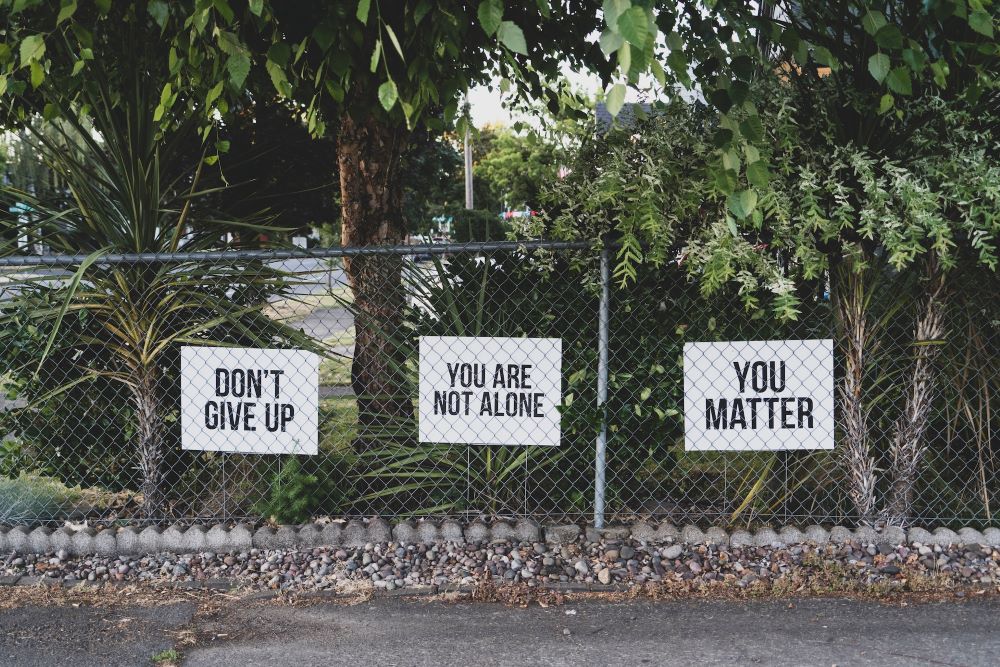As a society, we’ve done a lot to raise awareness on the importance of mental health and reduce the stigma—but there’s still more we can do. According to the Government of Canada, one in three Canadians will experience mental health issues in their lifetime. The odds are not great, yet many people still believe mental health disorders are the stuff of myths or the imaginations of weak links looking for an excuse to shirk responsibility. The reality is mental health problems are extremely real, despite how much anyone wishes they weren’t. That’s why it matters to raise awareness. We may not like the reality of them, but we still have a responsibility to provide support for those struggling with mental illness and devise appropriate treatment plans. The first step is creating awareness. Here are seven (7) ways to raise that awareness.
- Check in on People
Asking “how are you?” often just constitutes polite small talk in our world. Not many are looking for an honest answer, and it’s even frowned upon to be too candid when someone asks you how you’re doing. But these simple questions, if taken more seriously, offer the opportunity for people to talk about how their life is going. When we ask how someone is doing at the moment, we should make it clear we’re looking for a real answer because we’d love to hear where someone stands emotionally and mentally. Sometimes all it takes to raise awareness on mental health is encouraging conversations centred around the subject, plus being respectful and attentive when people share their emotions.
- Be Open and Authentic
Inspiring people to be comfortable discussing mental health also goes beyond checking up on people’s emotional states. We must also lead by example, demonstrating that we weren’t only asking questions in order to pry and collect gossip fodder. If all we do is ask about how other people are doing, yet refuse to keep it real when asked about our own mental health, we send the wrong message. By ensuring you’re as honest as possible while you go about encouraging authenticity from others, you nurture a safe environment to address mental wellness concerns and show others it’s okay to be honest about their mental health struggles.
- Plaster Your Message
Putting your message up where others can see it is another part of being open and authentic, except this time you’re widening your reach past the one-on-one conversations you’re having with anyone in your inner circle. Posting about mental health on social media, taking screening tests and posting results, creating and distributing educational online content, or wearing clothing that communicates an uplifting message about taking care of yourself are all ways to guarantee you’re getting conversations started about mental wellness outside your immediate social circle.
- Do Some Research
Strangely enough, you wouldn’t be the only one you could potentially help by getting curious about mental health and familiarizing yourself with the signs, symptoms, and treatment options of various mental illnesses. Of course, it’s good to know how to take care of yourself, because that’s another way to lead by example and encourage others to seek help themselves. However, knowing the latest research helps you navigate the trickier parts of taking care of someone who’s mentally unwell and improves your confidence in the subject, making it easier to talk about with other people.
- Approach Local Businesses and People in Power
You can broaden your reach and start to destigmatize mental illness even more by appealing to your nearby business owners and government officials. You can let them know why it’s important to create an open dialogue about mental health and come up with ideas on how they can include mental health awareness in their business practices, marketing, and legislative decisions. This helps to create a community based around protecting mental wellbeing, and ensures those with limited access to the internet and undereducated social circles are still being exposed to the topic of mental illness and health.
- Request Better Treatment
You may continue to build awareness about mental health by setting boundaries that protect your mental wellbeing and emphasizing the importance of others playing their part in protecting your mental health. This is doubly important if you’ve been recently diagnosed with any mental illness. Let others know how they can assist you on your journey to recovery and make it clear why mental health is no joke. If you’re worried this sounds selfish, it isn’t. Ensuring you’re mentally healthy is as vital to everyone else’s welfare as it is yours.
- Host Events Centred on Mental Health
While mental health is a serious subject, you can bridge many gaps in awareness by introducing the idea in exciting, fun, and engaging ways. Hosting movie nights where you and guests watch a movie with themes of mental illness is one example of an event centred around mental health. But movie nights are obviously not your only option. You can host bake sales or dinners to raise money for mental health organizations, request donations instead of birthday gifts, run a marathon, or do a comedy special, amongst other things. The key is to just keep your event focused on bringing awareness to mental health.
Luke Miles | Contributing Writer










